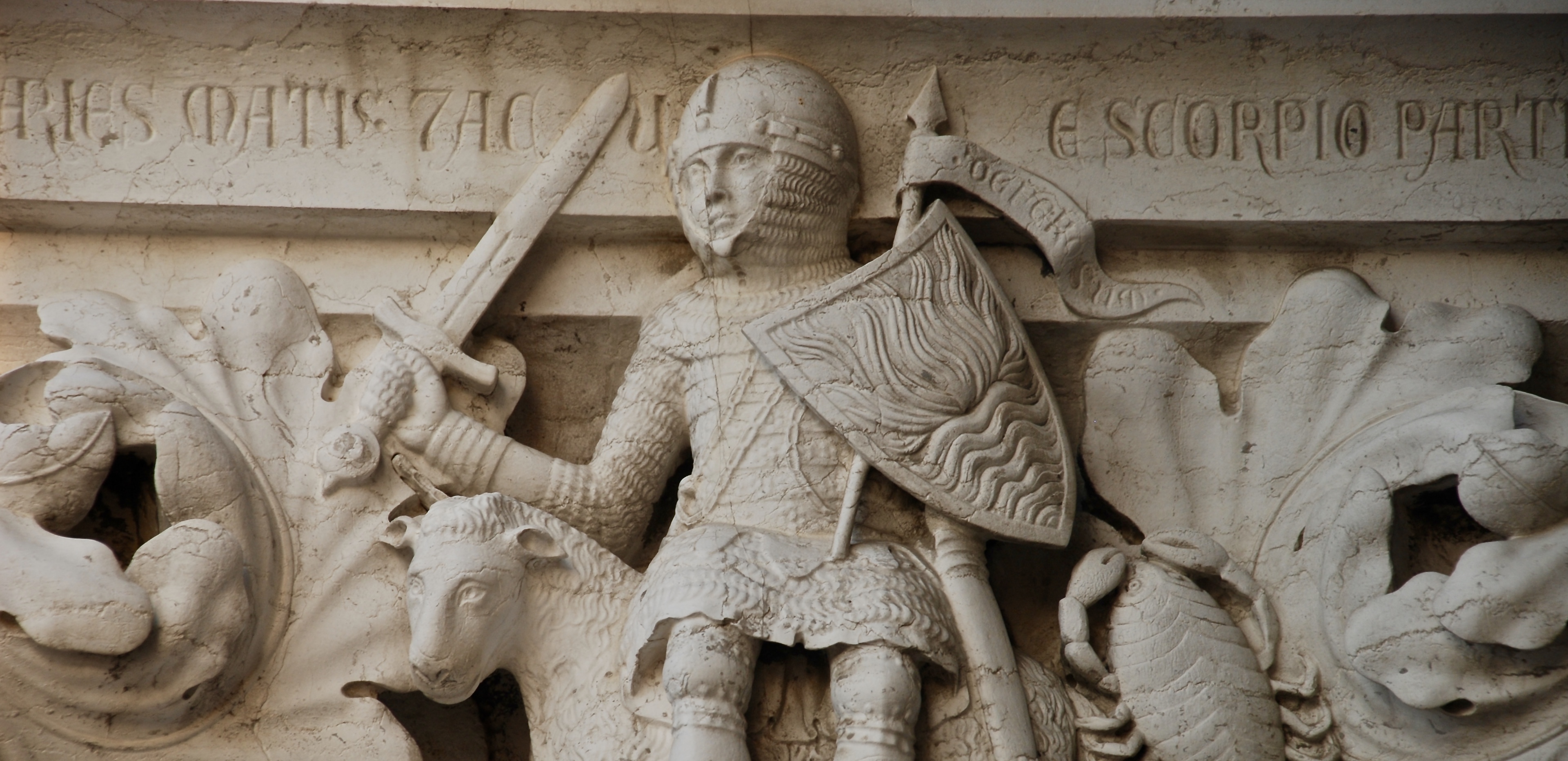Knightly Houses in Kelbonnar
Across Kelbonnar’s Material Plane, and on many of its other planes of existence, knightly houses fight monstrosities and evils that stalk both the wild and not so wild places. Knightly Houses operate as private organisations, predominantly separate from nation states or other factions, whose members pledge allegiance to the house and devotion to the Divine the house is dedicated to in exchange for a roof over their heads, martial training and quite often divinely granted powers.
Nomenclature
Despite being referred to as ‘knightly houses’ the vast majority of knightly houses have no connection to the systems of honours or nobility that exist within Kelbonnar’s political entities. Members of knightly houses, whilst they will generally be regarded with respect by those that they come across have no official place of honour within the peerage and honours systems of nation states, nor do people made knights within a nation state have any position within a knightly house. To avoid confusion, many people, including those within knightly houses themselves will refer to, a member of a knightly house as a Paladin.Geopolitical Ties
The vast majority of knightly houses are independent from Kelbonnar’s geopolitical entities, but this does not mean that they are isolated from them. On the contrary, many knightly houses have their fortresses based within the lands of Kelbonnar’s nation states and they are widely accepted and tolerated provided that they abide by any local laws, as their presence reduces the risk of the land being threatened by monsters and other forms of evil that may wish to take a hold there. However, there are a number of knightly houses who have deliberately chosen to establish themselves in territory that is not claimed by any geopolitical entity. In these cases the choice of a more remote location was deliberately picked to provide a more solitudinous setting to avoid pleasurable or political distractions. Knightly houses who have established themselves within the territory claimed by a nation state will often have agreements with them which mean that they can come and go as they please and are given ownership of the land their fortresses are built upon as well as a sizeable area of hinterland to sustain themselves, in exchange for helping to keep the peace within their nation of residence. However, it is rare that a knightly house would choose to get involved in the politics of the nation they are based in, which extends to acting in the defence of said nation should they be attacked by another geopolitical entity. Instead, most knightly houses prefer to remain neutral, so that they can carry out their work without having to pay heed to borders. The main exception to this rule in the Imperial Order of Knights, which was founded in honour of the divine Astartes by Machestaro I, the first Emperor of the Empire of Turelion, specifically to bring some control over the actions of knightly houses within his territory and to ensure that its members would only protect the interests of the Empire, rather than operating across borders and would fight for the Empire should it be threatened by another nation.Religious Ties
The vast majority of knightly houses are dedicated to one of Kelbonnar’s Divines. It is from their patron Divine that the knights and paladins derive their powers and the members of each house are expected to adhere to the codes and virtues espoused by their patron. In practice, most Divines will only have a single knightly house dedicated to them, but there are certain Divines which have multiple houses dedicated to them. Both Menella and Gallena as Divines whose domains incorporated life and the preservation of life respectively have multiple houses dedicated to them, driven by a desire to help those in need. Conversely several Divines have no knightly houses linked to them at all, as their divine areas of interest do not necessitate such an organisation being under their auspices. For example, there are no knightly houses dedicated to Raminit, whose domain is excess.Membership
Knightly houses tend to have an open membership policy, whereby anyone who wishes can approach them, enrol as squires and begin their training with the house of their choice. However, these squires have to pass a rigorous training and education process, as well as passing an arduous physical and mental trial in order to graduate to full knighthood. Pledging one’s service to a knightly house is often something that is encouraged amongst younger children of nobility, as it provides employment befitting their social station, whilst also removing the burden of providing dowries, support or inheritance to the children in question, as most knightly houses require their members to eschew their temporal attachments and possessions. Some knightly houses go even further than this, and act as a kind of orphanage, taking in parentless children from the streets and training them from a young age to fight for and serve their deity.
Type
Military, Knightly Order
Subsidiary Organizations



Comments